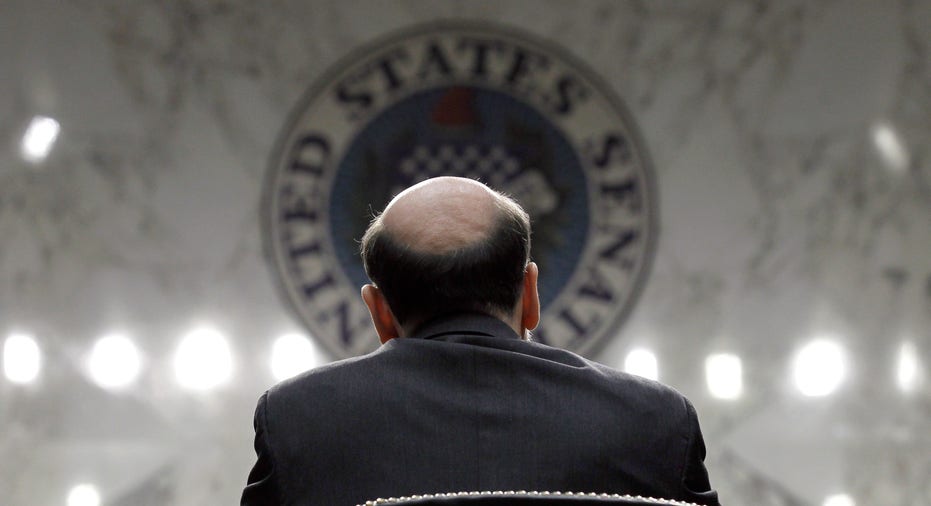Expect Slow Economic Growth in 2013?

Another year of high unemployment and anemic economic growth rates has come and gone, leaving many people to say "good riddance" to 2012. But will the situation improve much in 2013?
Probably not, says John Moore, associate professor in the Finance and Economics department at Walsh College in Troy, Mich. He believes damage related to the financial crisis has put the United States at risk for a period of extended economic "malaise" similar to that of the 1970s.
What is your outlook for US economic growth in 2013?
Overall gross domestic product growth for 2012 is likely to be ... around 2%. This is, historically, an anemic rate of growth.
In the 1970s, the American economy faced the dual problems of high unemployment and high inflation. The origins of this problem began in the late 1960s, and the economy was adversely impacted through the early 1980s. Overall, the American economy experienced malaise for almost 15 years.
Our present situation is somewhat different from the 1970s in that the dual threat this time is a combination of high unemployment and high federal debt levels, but the implications are somewhat similar. The dilemma is that any significant deficit spending by the federal government will exacerbate the debt-level problem. At the same time, any effort to balance the federal budget that involves significant tax hikes will negatively impact economic growth.
The plain and simple truth is that, just like the 1970s, we're finding ourselves in an economic quandary that defies quick fixes. The problems are solvable, but they will take time and will likely involve lowered federal spending and some tax increases.
All of the above lead me to conclude that 2013 will likely be another year of very slow GDP growth. In fact, there is a clear risk that the economy could remain soft for a prolonged period of time, just as it did in the 1970s.
How will the global economy impact the US economy this year, and vice versa?
As slow as American GDP growth has been over the past four years, growth in the eurozone has been worse. The European Commission recently announced that the eurozone will experience GDP contraction in 2012, and it forecasts no growth for 2013.
China and India are likely to continue to grow their economies over the next few years, but they will be unable to sustain the extremely high rates that have characterized the past five years.
The fragile European economy, combined with a slowing of Chinese and Indian economic growth rates, pose significant threats to the American economy. We live in an increasingly globalized economy, and any adverse events in the United States, Europe and/or Asia will necessarily impact all world economies. I consider Europe to be the dangerous threat to global economic recovery over the next 12 months.
Other than the presidential election, what other significant events or factors will influence the US economy in 2013?
Interestingly, although the election is over, many of the major economic issues that were at the forefront of the presidential debates remain unresolved. The most obvious near-term issue is the "fiscal cliff," which would significantly impact both taxes and federal spending.
At the core of the matter, however, is the fact that any meaningful economic growth in 2013 in the United States must come from the private sector -- and most likely from small businesses. The private sector is largely hesitant to make the investments and commit to new initiatives right now.
The problem is that the private sector is unable to effectively gauge risk at the present time. Labor costs, especially associated with national health care, are difficult to estimate. Likewise, the risks of added regulatory burdens and tax policy are unknowns.
Until Washington establishes clear and definitive policy on these presently unclear cost factors, private capital will be reluctant to invest in the projects that are key to sparking economic growth. In the end, it is less important where the end result ends up. The more important result is clarity.
Do you see specific issues such as income inequality, Occupy Wall Street or tax reform having an impact on the US economy this year?
My own take is that the above three issues, which were prominent in 2011 and 2012, will be displaced by new issues in 2013.
The international issue will continue to be Europe and its financial crisis. The structural nature of the European Union (is one) where monetary policy is somewhat centralized, but fiscal policy is decentralized. This set of circumstances make the EU's attempts to return to economic prosperity far more challenging than what the United States faces. Unfortunately, I don't believe that nations with such disparate economic views as Germany and the Portugal, Italy, Greece and Spain, or the PIGS, nations will easily reach consensus to attack and eventually solve the economic crisis at hand.
On the domestic side, I see the primary economic headlines centering on politics and the relationship between the federal government and the states. The Supreme Court's ruling on the Affordable Care Act in summer 2012 left open the potential for states to reject the Medicaid portion of the act, which could negate much of its intended objectives.
Many people believe that the election resolved the Obamacare issue, but that is not the case. This issue will have economic implications throughout 2013 because it will add to the confusion and uncertainty that private sector owners and investors will be faced with.
We would like to thank John Moore, associate professor in the Finance and Economics department at Walsh College in Troy, Mich., for his insights. Questions for this interview were contributed by Greg McBride, CFA, senior financial analyst at Bankrate.com.
Copyright 2012, Bankrate Inc.



















